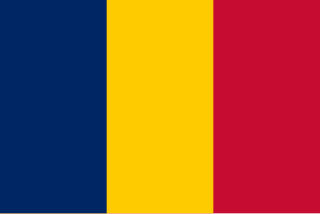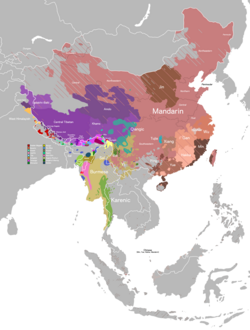Related Research Articles

Eid al-Adha or the Feast of Sacrifice is the second and the largest of the two main holidays celebrated in Islam. It honours the willingness of Abraham (Ibrahim) to sacrifice one of his sons, either Ishmael (Ismail) or Isaac (Ishaq), as an act of obedience to God's command. However, before Abraham could sacrifice his son in the name of God, and because of his willingness to do so, God provided him with a ram to sacrifice in his son's place. In commemoration of this intervention, animals are ritually sacrificed. Part of their meat is consumed by the family that offers the animal, while the rest of the meat is distributed to the poor and the needy. Sweets and gifts are given, and extended family members typically visit and are welcomed. The day is also sometimes called the Greater Eid.

The cuisine of Botswana is unique but shares some characteristics with other cuisines of Southern Africa. Examples of Setswana food include pap, samp, vetkoek, bogobe and mophane worms. A food unique to Botswana is seswaa, salted mashed-up meat.

Jul or jol is the term used for the Christmas holiday season in Scandinavia and parts of Scotland. Originally, jul was the name of a month in the old Germanic calendar. The concept of jul as a period of time rather than a specific event prevailed in Scandinavia; in modern times, jul is a period of time stretching from the fourth Sunday before Christmas Eve, December 24, to (traditionally) mid-January at the date of Epiphany with the month of December and Christmas, and the week up to the New Year, as its highlight. The modern English yule and yuletide are cognates with this term.
The Sheep and the Goats or "the Judgement of the Nations" is a pronouncement of Jesus recorded in chapter 25 of the Gospel of Matthew, although unlike most parables it does not purport to relate a story of events happening to other characters. According to Anglican theologian Charles Ellicott, "we commonly speak of the concluding portion of this chapter as the parable of the Sheep and the Goats, but it is obvious from its very beginning that it passes beyond the region of parable into that of divine realities, and that the sheep and goats form only a subordinate and parenthetic illustration". This portion concludes the section of Matthew's Gospel known as the Olivet Discourse and immediately precedes Matthew's account of Jesus' passion and resurrection.

Kaiyuan is a county-level city within the jurisdiction of Honghe Hani and Yi Autonomous Prefecture in the southeast of Yunnan province, China.
Phukha is a Loloish language spoken by the Phula people of Vietnam and China.

Chadian cuisine is the cooking traditions, practices, foods and dishes associated with the Republic of Chad. Chadians use a medium variety of grains, vegetables, fruits and meats. Commonly consumed grains include millet, sorghum, and rice as staple foods. Commonly eaten vegetables include okra and cassava. A variety of fruits are also eaten. Meats include mutton, chicken, pork, goat, fish, lamb and beef. The day's main meal is typically consumed in the evening on a large communal plate, with men and women usually eating in separate areas. This meal is typically served on the ground upon a mat, with people sitting and eating around it.
The 2011–12 Vermont Catamounts season was their seventh in Hockey East. Led by head coach Tim Bothwell, the Catamounts will attempt to qualify for the NCAA hockey tournament.
The Northern Loloish languages, also known as Northern Ngwi, are a branch of the Loloish languages that includes the literary standard of the Yi people. In Lama's (2012) classification, it is called Nisoid (Nisu–Lope), which forms the Nisoish branch together with the Axi-Puoid languages.
Muji or Muzi is a Loloish language cluster spoken by the Phula people of China. It is one of several such languages to go by the name Muji. Muji varieties are Northern Muji, Qila Muji, Southern Muji, and Bokha–Phuma.
Nisu is a language cluster spoken by half a million Yi people of China. It is one of six Yi languages recognized by the government of China. The Yi script was traditionally used, though few can still read it. According to Lama (2012), Nisu (Nishu) autonyms include, , and.
Zokhuo, also known as Niuweiba (Cowtail) Phula, is a Loloish language spoken by the Phula people of China. It appears to be the Chökö (Tśökö) of Vietnam.
Nyisu or Yellow Yi 黄彝 is a Loloish language of Kunming, central Yunnan, China. There are fewer than 300 speakers remaining according to Bradley. Nyisu speakers are also referred to as Doupo 都泼.
The Southeastern Loloish languages, also known as Southeastern Ngwi, are a branch of the Loloish languages. In Lama's (2012) classification, it is called Axi-Puoid, which forms the Nisoish branch together with the Nisoid (Nisu–Lope) languages.
Awu, is an unclassified Loloish language of Yunnan, China. It is spoken in Yuanyang County, Yunnan, China, including in the village of Xiaopingzi 小坪子, Daping Township 大坪乡.
Ache is a Loloish language spoken by the Yi people of south-central Yunnan, China. Ethnologue lists Azhe as an alternate name.

Western Saharan cuisine comprises the cuisine of Western Sahara, a disputed territory in the Maghreb region of North Africa, bordered by Morocco to the north, Algeria to the extreme northeast, Mauritania to the east and south, and the Atlantic Ocean to the west. The Western Saharan cuisine has several influences, as the population of that area (Sahrawi), in their most part are of Arabic and Berber origin. The Saharawi cuisine is also influenced by Spanish cuisine owing to Spanish colonisation.

Peppersoup is a soup from parts of West Africa, notably Nigeria, made using various meats, chili peppers and calabash nutmeg as primary ingredients. It is a spicy soup that has a light, watery texture. Despite its name, the soup is not necessarily defined by a pepper-forward flavor profile, that is, the flavors are much more complex, with nutty, bitter, woodsy, and floral notes, as well as warmth. It is considered to be a delicacy by some people in Western Africa, and some West Africans believe that the soup has some basic medicinal qualities.

Amanda Pelkey is an American ice hockey forward, currently playing in the Premier Hockey Federation (PHF) with the Metropolitan Riveters. She won the Isobel Cup in 2016 with the Boston Pride and was previously affiliated with the Calgary section of the Professional Women's Hockey Players Association (PWHPA). Her college ice hockey career was played with the Vermont Catamounts women's ice hockey program in the Hockey East conference of the NCAA Division I.
References
- ↑ Azha at Ethnologue (18th ed., 2015) (subscription required)
- ↑ The representative dialect studied in Pelkey (2011) is that of Luojiayi 倮家邑, Binglie Township 秉烈乡, Wenshan Zhuang and Miao Autonomous Prefecture.
- Pelkey, Jamin. 2011. Dialectology as Dialectic: Interpreting Phula Variation. Berlin: De Gruyter Mouton.
